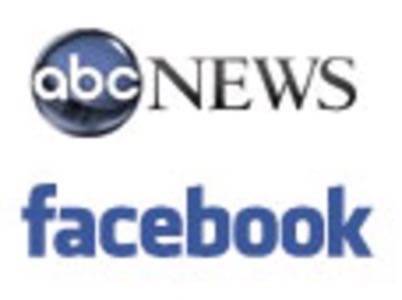Ah, what a difference a caucus makes. In November, when ABC and Facebook announced their partnership for US political coverage we, like many other tech pundits, expressed skepticism. We noted that polls on the Facebook politics section were drawing just around 1,000 participants — “a microscopic number” compared to the 17 million US members of voting age on the site (now over 18 million). But just over a month later, things seem to have turned around completely.

While watching the joint ABC-Facebook debate last Saturday, I couldn’t help but think that Facebook was getting the short end of the stick. The on screen graphics didn’t include the Facebook name (just ABC’s), the stage wasn’t plastered with the Facebook logo (just one tiny graphic that was visible in occasional wide shots), there was no real content tie-in as there was for the CNN/YouTube debates or the MySpace/MTV Candidate Dialogues, and I don’t think I once heard Charlie Gibson mention Facebook.
On the web, Facebook’s debate promo site wasn’t very impressive. There was a live comment wall, but with 30,000 comments logged over the course of the night and no context, it felt like trying to watch every Twitter stream on the web at once. In short: it was overwhelming and a bit dizzying.
But even so, things have really picked up on Facebook’s political page. ABC is reporting that 1 million users have added their US politics application. It is unclear whether this number is post debate or overall (I’m thinking likely, overall) and because it is an officially sponsored application, Facebook doesn’t offer usage metrics for it. But, regardless, the politics section of the site has clearly picked up steam since November. Most polls are now receiving around 10,000 votes and as Obama showed in Iowa, at least on the Democratic side, it might be possible to take some of that Internet support and make it count in the elections. According to a scientific ABC/Facebook poll, 40% of respondents get political information on the Internet, and 2/3rds of those say that information is important in deciding who to vote for.
Why the turn around? Barack Obama might be the reason. Obama has long been the most popular candidate on Facebook. He now has over 210,000 supporters on the site — up 4,000 since just last night — and commands 61% of the Democratic attention. His popularity on the site grew almost 20% following his pivotal win in Iowa last week. As we noted after the Iowa caucuses, much of Obama’s support in the state came from young voters (under the age of 29), and not surprisingly the majority of US Facebook users are also under the age of 29 (according to their ad targeting tool).
These numbers paint an incredibly rosy picture for Barack Obama, Ron Paul (who has a commanding lead among Facebook Republicans) and Mike Huckabee (who has surged from 8.74% support in November to 18.75% today). Of course, the Republicans will need to get more young voters to the polls than they did in Iowa (where 80% of young voters caucused with the Democrats) in order for Paul to benefit from his online support. (Huckabee, perhaps, has less invested in the youth vote because he also does well in national polls and among evangelical Christian voters.)
Update: We should probably also mention that the ABC-Facebook debate was the most watched of the election cycle to date. The 9.36 million viewers for the Democratic portion nearly triples the most watched Dem debate so far. 2.9 million were in the 25-54 demo — again nearly triple the previous best. Certainly some of the viewer bump can be attributed to how late in the election cycle we are (this debate may have been perceived as more important). But perhaps Facebook did help push viewers to ABC.

















